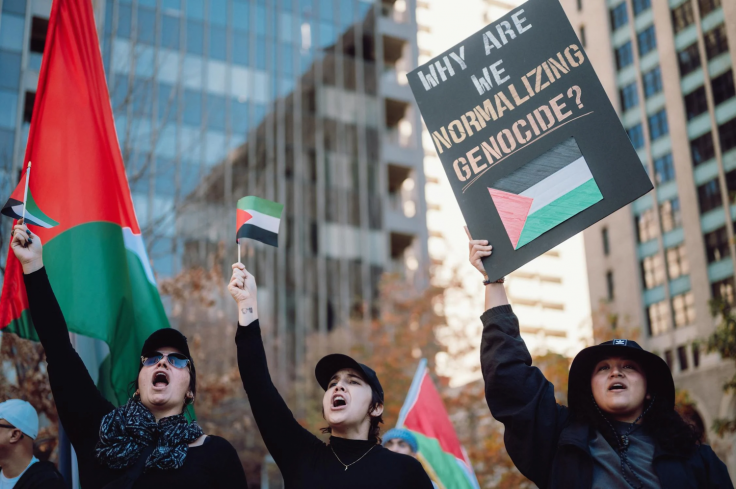In the midst of the Palestinian-Israeli conflict and the associated challenges on university campuses, trustees and board members are undoubtedly reaching out to college and university presidents, seeking guidance on their roles and responsibilities. Trustees, aware of their duty to the institution, are contemplating their involvement, wondering what actions are appropriate and what boundaries they must respect.

A crucial reminder in these times is that administrators, not boards, should be the primary actors managing the situation on the ground. The role of trustees is to ensure accountability and support to those administrators. Trustees should expect detailed reports from presidents and senior leaders about the events and their impacts. These situations are complex and unprecedented, necessitating that boards provide presidents with a safe space to discuss issues and strategies. Furthermore, trustees should offer their expertise when relevant, always mindful that their primary role is to support and oversee, not to manage.
Peter Eckel's framework for board-level discussions in such times generally encompasses four main areas: free speech and academic freedom, campus safety and continuity, student care and well-being, and the overarching concern of board governance. Each of these areas presents unique challenges and risks, both reputational and operational, to the institution.
1. Free Speech and Academic Freedom
Boards must understand the nuances of free speech and academic freedom within their specific institutional context. Presidents should reinforce the importance of these freedoms and clarify that the extent of free speech rights can vary significantly between public and private institutions. Public universities are bound by constitutional rights, whereas private institutions follow contractual agreements outlined in their policies.
Presidents must ensure that boards comprehend the implications of free speech policies and their enforcement, particularly in the context of protests and demonstrations. Discussions should cover not only the letter of the policy but also the broader strategic considerations to avoid exacerbating tensions. For example, allowing a protest encampment to continue, even if technically against the policy, might be a more prudent approach to avoid larger conflicts.
Additionally, boards should appreciate the broader concept of academic freedom, a cornerstone of effective higher education. Presidents should educate trustees on the history and significance of academic freedom, preparing them for future situations that may challenge these principles.
2. Campus Safety and Continuity
Presidents should engage boards in conversations about the measures being taken to ensure the safety of students, faculty, and staff. This includes not only immediate physical safety but also the continuity of campus operations. With protests potentially disrupting campus activities, boards need to understand the institution's business continuity and incident management plans. These plans should address how the university will maintain operations if access to offices or classrooms is blocked and how it will protect sensitive information and ensure instructional continuity.
Communication strategies are also critical. Boards must be kept informed of ongoing developments and the institution's responses. This transparency reassures trustees that the administration is proactive and prepared.
Furthermore, presidents should review the processes for handling policy violations related to student conduct and employee behavior. This includes outlining how the institution will respond to disruptions and ensuring trustees understand the legal and procedural frameworks in place.
3. Student Care and Well-being
The current conflicts can deeply affect students, particularly those with personal connections to the regions involved. Presidents should make sure that boards are aware of the measures taken to support student mental health and well-being. This extends to faculty and staff, who may also be under significant stress.
Discussions should include how the institution is addressing immediate crises and the long-term well-being of its community members. Trustees should understand the resources and support systems in place and how these are being utilized during the crisis.
4. Board Governance Domains
Finally, presidents must address the governance role of the board in times of crisis. Trustees need to understand their responsibilities in overseeing the administration's actions and ensuring that the institution is upholding its values and policies. This includes managing sensitive issues such as calls for divestment from certain investments, which requires careful consideration and dialogue between the board and the administration.
5. Reputational Risk
Reputational risk is a critical concern for boards. Presidents should discuss with trustees the potential impacts of their decisions on public perception, alumni engagement, political relationships, and student enrollment. Every decision, from how protests are handled to how the institution communicates its stance, can affect the university's reputation.
Boards need to be comfortable with the messages their actions send to stakeholders. Clear, consistent communication and thoughtful decision-making are essential to maintaining trust and support from the wider community.
While not all campuses may be experiencing the same level of unrest, the fundamental principles of board responsibility remain constant. Boards must focus on protecting the institution's long-term interests, supporting the administration, and ensuring accountability. By fostering open communication and understanding their roles, trustees can navigate these challenging times effectively, helping their institutions emerge stronger and more resilient.
© 2025 University Herald, All rights reserved. Do not reproduce without permission.








